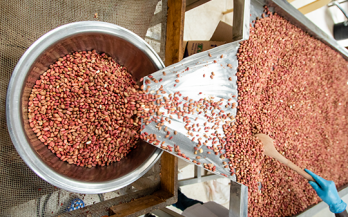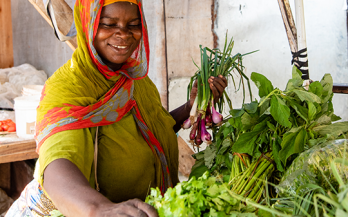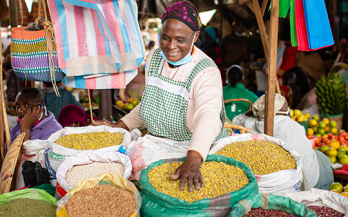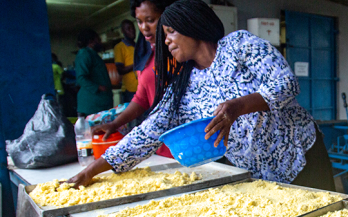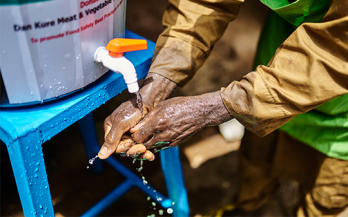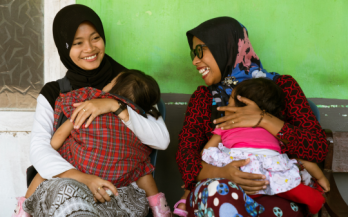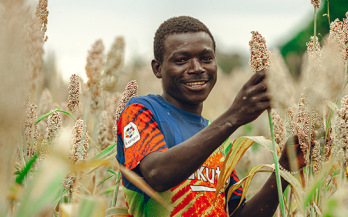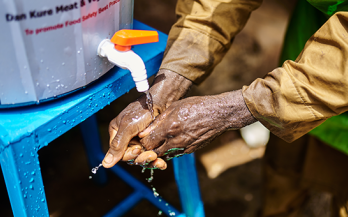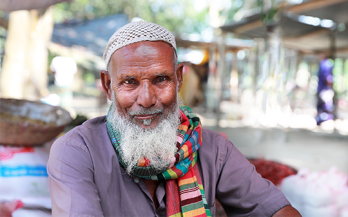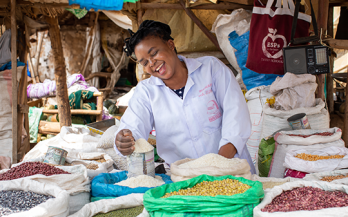Global Alliance for Improved Nutrition (GAIN) - 06/06/2024
To ensure the success of LSFF, governments can establish and strengthen national mandatory fortification standards as well as regulatory frameworks that ensure access to high-quality fortified foods across the entire population. Strong regulations also help ensure a level playing field for fortified food producers where all are held to the same standard.
Global Alliance for Improved Nutrition (GAIN) - 23/05/2024
Buguruni market is a traditional food market in Dar-es-Salaam, Tanzania with about 2,630 vendors selling their produce to about 70,000 consumers daily. In a rapid assessment conducted in 2020, almost a third of consumers reported concerns related to food safety when shopping in the market.
Global Alliance for Improved Nutrition (GAIN) - 16/05/2024
GAIN, along with the Kenya Tea Development Agency Foundation (KTDA Foundation) coordinated and implemented a training package for the vegetable kiosk vendors within the community. It was targeted at food vendors and small traders around tea factories and other stakeholders around their business sites.
Global Alliance for Improved Nutrition (GAIN) - 18/04/2024
To scale up the production and consumption of biofortified foods through commercialisation, GAIN and
HarvestPlus partnered in 2019 to implement the Commercialisation of Biofortified Crops (CBC)
Programme
Global Alliance for Improved Nutrition (GAIN) - 30/04/2024
EatSafe: Evidence and Action Towards Safe, Nutritious Food (EatSafe) is a USAID Feed
the Future programme that works in traditional markets in Nigeria and Ethiopia to
improve food safety.
Aang Sutrisna, Anthony Wenndt, Drajat Martianto, Hera Nurlita, Yusra Egayanti - 31/05/2024
Micronutrient malnutrition remains a significant challenge in Indonesia, particularly among impoverished populations who struggle to afford and access nutrient-rich foods. Iron deficiency anemia is especially concerning, affecting 48.9% of pregnant women and 38.5% of children across the country. To address these gaps, the Ministry of Health, in collaboration with the Global Alliance for Improved Nutrition (GAIN), conducted a comprehensive Micronutrient Gap Assessment (MGA). This assessment aimed to evaluate micronutrient intake levels among Indonesians and identify the potential benefits of rice fortification in meeting recommended dietary requirements.
Stella Nordhagen, Teale Yalch, Richard Pluke, Genet Gebremedhin, Wendy Gonzalez, David Morgan - 29/05/2024
Mandira Neogi, Sabiha Sultana, Sharada Keats, Mark Gachagua, Mohammad Monirul Hasan, Ashek Mahfuz, Rudaba Khondker - 16/05/2024
To successfully execute Bangladesh’s National Pathway for the Sustainable, Equitable and Resilient Food Systems Transformation, it is conducive for all actors in the food system to have consistent and easy-to-access data for informed decision-making. To meet this need, the Government of Bangladesh and the Global Alliance for Improved Nutrition (GAIN) in collaboration with the Columbia Climate School, FAO, different ministries including Prime Minister’s Office, Ministry of Planning, Ministry of Agriculture, and other relevant ministries, departments, agencies, development partners, academia, and private sector developed the Bangladesh Food Systems Dashboard (BDFSD) integrating national and subnational level data.
GAIN Kenya - 06/05/2024
GAIN Kenya has been working towards improving the nutrition and health status of Kenyans with support from donors, government, the private sector and other stakeholders. These efforts have culminated in increased policy influence in counties, development of the Food Fortification Strategic Plan 2018-2022 and the establishment of Food Safety Coordination Committee in Counties.
